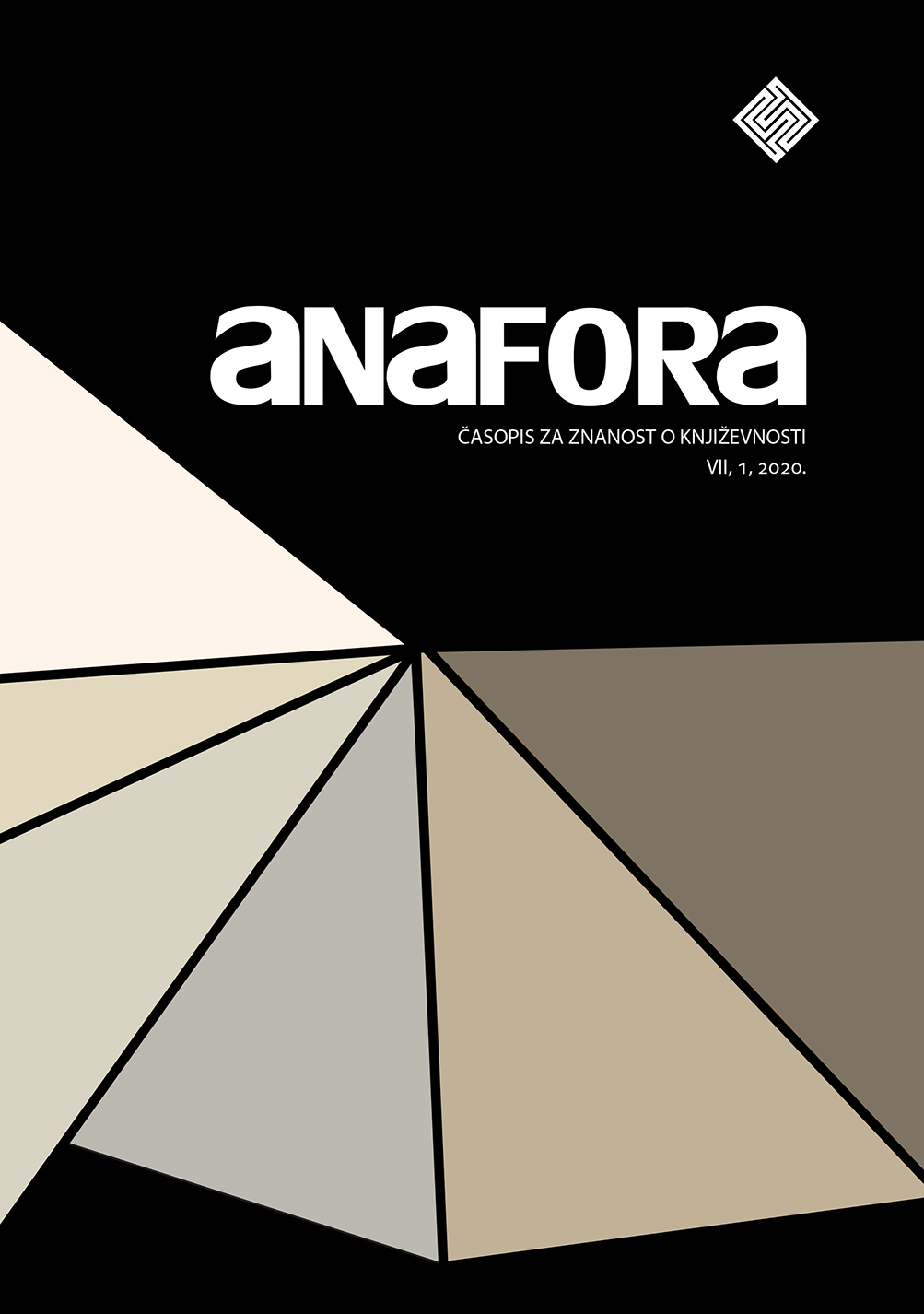Uloga scenskoga prostora u produkcijsko-recepcijskom procesu na primjeru engleske topografske drame i dubrovačke komedije
The Role of Stage Space in the Production-Reception Process on the Example of English Topographic Drama and Dubrovnik Comedy
Author(s): Ivana KrtinićSubject(s): Theatre, Dance, Performing Arts, Croatian Literature, British Literature
Published by: Filozofski fakultet, Sveučilište Josipa Jurja Strossmayera, Osijek
Keywords: productive and receptive process; stage space; smješnice; topographical play; comedy; square;
Summary/Abstract: In this paper, the author explores the role of stage space by putting in a comparative relationship the implementation practice of comedies in 17th century England and Dubrovnik. The play is seen as a complex productive and receptive process in which the selection of the stage space plays an essential role in shaping the play. In the centre of the research are public places with its connotative and denotative role. By putting in correlation the comedies in Dubrovnik i.e. smješnice and the English topographical plays, the perception of similar or almost identical spaces is analysed - such as the city’s main square. The appearance of the square in the 17th century comedies, whether it marks a realistic or imaginary space, is significant because then the stage space stops being just a stage backdrop, and evolves into a space of performance authenticity, just like in Dubrovnik’s smješnice. Because it carries a wider semantic field of life’s dramatics and a specific, recognizable dynamics, that kind of stage space invites the audience to actively participate and to form their own metalanguage. At the same time, it creates a counterpoint between the stage space and playing space that is designed by the viewer. in the 17th century, playwrights of both England and Dubrovnik recognized the importance of stage space in achieving the performance persuasion in their comedies, but they saw the open space of a square differently. With the standard convention of stage display in 17th century comedies, comedies both in England and Dubrovnik will reach for denotations that are close to expectations of their own audience, while achieving performance authenticity. By evoking the social dimension of the space, the author discovers the interdependence of the reception based on the mentality of a nation and the choice of stage space.
Journal: Anafora - časopis za znanost o književnosti
- Issue Year: 7/2020
- Issue No: 1
- Page Range: 99-120
- Page Count: 22
- Language: Croatian

